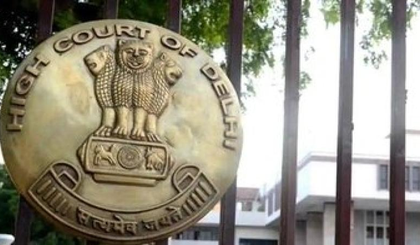Delhi HC to examine PIL against 'commercialisation' of education in private schools
By IANS | Updated: August 27, 2025 14:55 IST2025-08-27T14:51:08+5:302025-08-27T14:55:04+5:30
New Delhi, Aug 27 The Delhi High Court on Wednesday agreed to examine a Public Interest Litigation (PIL), ...

Delhi HC to examine PIL against 'commercialisation' of education in private schools
New Delhi, Aug 27 The Delhi High Court on Wednesday agreed to examine a Public Interest Litigation (PIL), seeking urgent judicial intervention to address the "commercialisation" of education in CBSE-affiliated private schools.
The petition challenged the alleged systematic exclusion of Economically Weaker Section (EWS) students in private schools through the "forced" purchase of expensive private publishers' books and excessive school materials.
Issuing notice, a Bench of Chief Justice Devendra Kumar Upadhyaya and Justice Tushar Rao Gedela sought responses of the Delhi government, Central Board of Secondary Education (CBSE) and National Council of Educational Research and Training (NCERT) in the matter.
The PIL, filed through advocate Satyam Singh Rajput, alleged that private schools are systematically excluding EWS children admitted under the Right to Education (RTE) Act by compelling parents to buy costly books from private publishers, amounting to Rs 10-12,000 annually.
"The Delhi government provides only Rs 5,000 per annum reimbursement, creating an unbridgeable gap that forces EWS families to withdraw admissions. This defeats the 25 per cent reservation mandate for disadvantaged children," the petition stated.
Despite CBSE circulars mandating exclusive use of NCERT books, the plea said, private schools continue prescribing expensive private publishers' books.
The petition pointed out that while NCERT books cost only around Rs 700 annually, private publishers' books imposed by schools run into over Rs 10,000.
The petitioner, Jasmit Singh Sahni, Director of Doon School, relied on RTI (Right to Information) applications filed between April and May 2024 to highlight alarming gaps.
The RTI replies revealed that NCERT has no official documentation on implementation mechanisms for its prescribed textbooks, while CBSE lacks a statutory framework or penalties to enforce compliance with book mandates.
The PIL proposed that if private publishers' books are prescribed due to shortages of NCERT material, a "Fixed Rate - Fixed Weight System" should be implemented to regulate their prices.
The plea urged the Delhi High Court that pricing should be based on objective parameters such as page count, paper quality (GSM), and compliance with the National Curriculum Framework (NCF).
The matter will be heard next on November 12.
Disclaimer: This post has been auto-published from an agency feed without any modifications to the text and has not been reviewed by an editor
Open in app